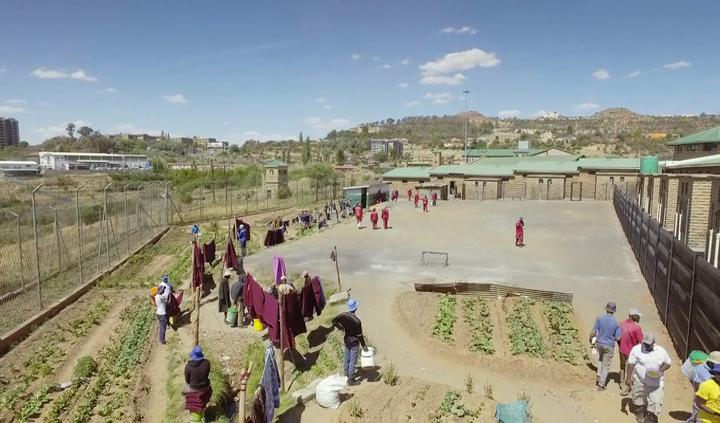Lesotho eligible for MCC Compact II

SHARE THIS PAGE!
‘Mantšali Phakoana
The United States government and the Millennium Challenge Corporation (MCC) board of directors have chosen Lesotho as eligible to continue developing Compact II with effect from March 31, 2024.
This was announced by prime minister Ntsokoane Matekane at a press conference this week.
According to Matekane, the compact’s entering into force comes after receiving an implementation letter from MCC confirming and unlocking a US$300 million investment between Lesotho and the US government.
This follows a 2022 agreement signed by the two countries on health and horticulture funding.
Matekane indicated that Lesotho enacted the Millennium Challenge Account (MCA) Lesotho Act in December 2022 to establish the organisation. This was followed by the appointment and launch of the MCA board of directors to oversee implementation of the Compact programme.
He noted that the government also successfully enacted three bills namely; Labour Code Amendment Bill, the Administration of Estates and Inheritance Bill and the Occupational Safety and Health Bill. These were collectively crucial in protecting the rights of workers, women, and children.
“It is important for me to highlight that these are the laws that, on our own as a country, had been planning to enact.
“For instance, the amendment to the Labour Code; it is something we have been working on since 1998 as we had realised on our own that we needed a new law that would closely align with the international labour conventions we have signed up for.
“Equally, inheritance reforms have been on our agenda for quite some time. So, these laws are Lesotho’s laws, they are not America’s laws! Yes, they will support the Compact programme, but they are reforms that we had been planning to do on our own as Basotho, realising the benefits such reforms would bring to our citizens,” Matekane indicated.
He pleaded with the MCA Lesotho to work tirelessly to ensure that the programme is implemented fully within the five years.
“We cannot afford any delays. Our economy needs this capital injection to boost productivity and job creation. We owe it to ourselves to improve the economy through successful implementation of this compact”.
Matekane assured government’s continued commitment and support to the Compact’s implementation.
To our partners, we still commit to good and democratic governance and equitable participation in development, he said.
Matekane also advised the youth to visit MCA offices to understand how best they can benefit from the project, as there are more than 94,000 jobs envisaged within the next 10 years under Business Environment and Technical Assistance (BETA).
He added that under the leadership of the deputy prime minister, Nthomeng Majara, the government has already established the Cabinet Sub-Committee on the Compact, to ensure that the government provides overall oversight, strategic direction and support for successful implementation of the Compact II.
The premier further instructed the MCA staff led by the ministry of finance and development planning to work diligently, to implement the Compact.
“There are several Basotho businesses out there that are eager to seize the opportunities that the Compact brings. Serve them with integrity, accountability and dedication. I have full confidence in your ability to serve Basotho well and achieve the grand results articulated in the Compact and more.
“I cannot fail to tell the public through you, that there is absolutely no tolerance for corruption in this and other processes of government. I invite, civil society, human rights defenders, media and the citizens to be on the watch,” he pointed out.
The Compact has come at a critical time when the country is in dire need of financial injections to revive the economy. It forms the core of Lesotho’s private sector led economic growth, recovery and job creation agenda, he noted.
The job creation potential of the horticulture project is estimated at 4000 jobs and other indirect jobs that are expected be created through packaging supplies, logistics, cold chain activities as well as the processing of the output.


Youth accuse police of sabotaging protest
5 days ago
LCS officers demand standard salaries
5 days ago
Govt ordered to suspend vendors’ eviction
8 days ago

240 inmates released on parole
9 days ago
Matekane calls for stronger trade cooperation
11 days ago


Cash-strapped LEC hikes staff salaries
15 days ago